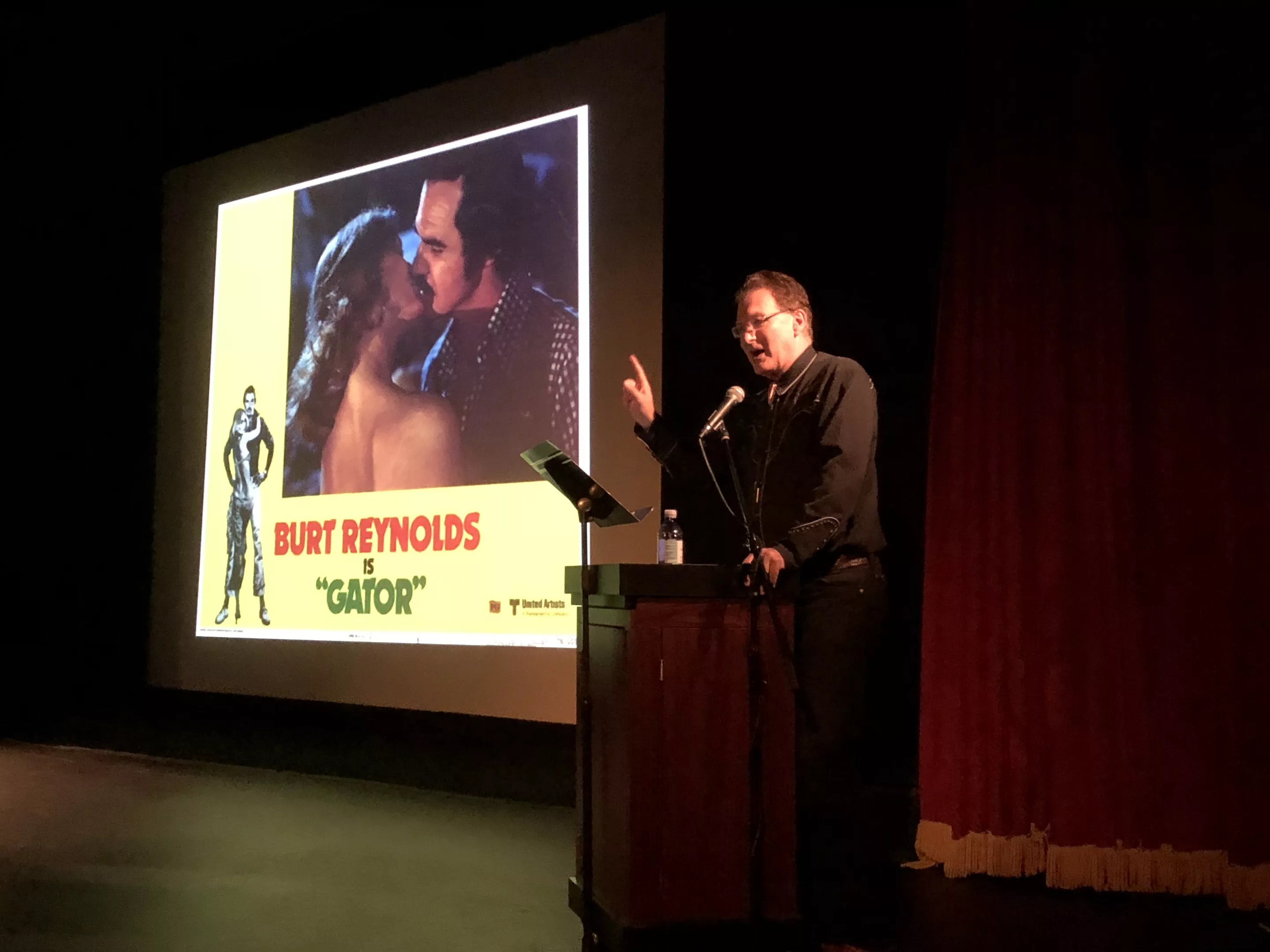
courtesy John Bloom

Audio By Carbonatix
Dallas gave birth to Joe Bob Briggs and his legendary drive-in movie column, but it also killed him. John Bloom, the real-life writer behind the movie critic persona, is going to overlook that small detail, however, and make an appearance in Dallas as Briggs later this month. It will be his first in many years.
Bloom, a writer
Briggs became the newspaper’s official drive-in movie critic. His character was a Grapevine native and a cinephile who celebrated B-movies for their violence, aesthetics and nude scenes. In each column, Briggs also opined on the news of the day or whatever else was stuck in his craw.
His infamous 1985 satire of the Live-Aid song “We Are the World” – retitled “We Are the Weird” – received such backlash from readers that Briggs was fired. “As of this moment, Joe Bob Briggs is dead,” Dallas Times-Herald editor Will Jarrett announced on the paper’s front page.
This year, make your gift count –
Invest in local news that matters.
Our work is funded by readers like you who make voluntary gifts because they value our work and want to see it continue. Make a contribution today to help us reach our $30,000 goal!
Briggs’ “death” freed him from his local column. Syndicates quickly picked him up and gave him a national audience. The column led to several best-selling books and gigs on networks such as The Movie Channel and TNT, where he showed his favorite monster and gore flicks.
Briggs will appear at Texas Theatre on Friday, Jan. 26, to offer a comedic history lesson on “How Rednecks Saved Hollywood.” Bloom says he’s looking forward to the show because the venue helped shape the outspoken character of Joe Bob Briggs.
“I’m very excited to do it at the Texas Theatre,” Bloom says. “When I was doing the Joe Bob column, a lot of times the only place I could see a movie indoors was at the Texas Theatre. It was sort of the last grindhouse.
“If I wanted to see the movie early like at 10 a.m. on a Friday, I could go to the Texas Theatre and there was always a wild crowd there, the kind that would talk back to the screen during the horror films,” Bloom says. “I became very familiar with the Texas Theatre. Plus, I lived in Oak Cliff for a while, so everybody knew about the Texas Theatre. I’m glad they kept it going.”
Bloom says Briggs has been studying the history of the redneck trope in
“There is never going to be a redneck rights organization that’s going to come through and claim that they’re being abused by Hollywood.” – John Bloom
“Of course, I showed a lot of exploitation films, and what makes more sense in this is the history of the redneck in
Bloom calls his show “a comedic history of the 400 years of redneck-dom starting in Scotland that comes down to Texas.” The history of the redneck on celluloid is a villainous one that’s been replaced over the years as audiences’ viewpoints have changed.
“The villain used to be the Native American,” he says. “You can’t do that anymore. Then it was
The redneck has become such an iconic villain in movies that even just the appearance of a redneck character is enough to communicate that something bad is about to happen to the hero.
“For example, in Pulp Fiction, the bring-out-the-gimp scene,” Bloom says with a laugh. “Nowhere is it said those two torturers are Southerners or rednecks or anything, but somehow, you know they are from the South. That’s the example of how the redneck became so iconic that you can put him in a position of power and you know things are going to get strange and kinky.”
Of course, the redneck trope isn’t always the bad guy or girl in a movie. Characters such as Buford Pusser from the 1973 cult classic Walking Tall, starring Joe Don Baker, and The Bandit from the 1977 action comedy Smokey and the Bandit, starring Burt Reynolds, have taken the motif of backwoods tough guys and turned them into relatable heroes.
“These are redneck antiheroes that people can get behind and are probably the [ancestors] of those guys like Vin Diesel,” Bloom says. “Even though he doesn’t seem like he’s from the South, he has all the elements that Joe Don Baker and Burt Reynolds had but on a larger scale.”
These days, Joe Bob presents his theses at film festivals around the country such as the Chattanooga Film Festival, where he kicks off his newest comedy lectures, and on tour with the Alamo Drafthouse’s chain of movie theaters. However, Dallas still maintains a special spot on his tour schedule.
“For years, we filmed my show for TNT in Dallas, and a lot of those people I worked with are coming to the show, and a lot of people I worked [with] in journalism are coming to the show,” he says. “So it is kind of a homecoming.”